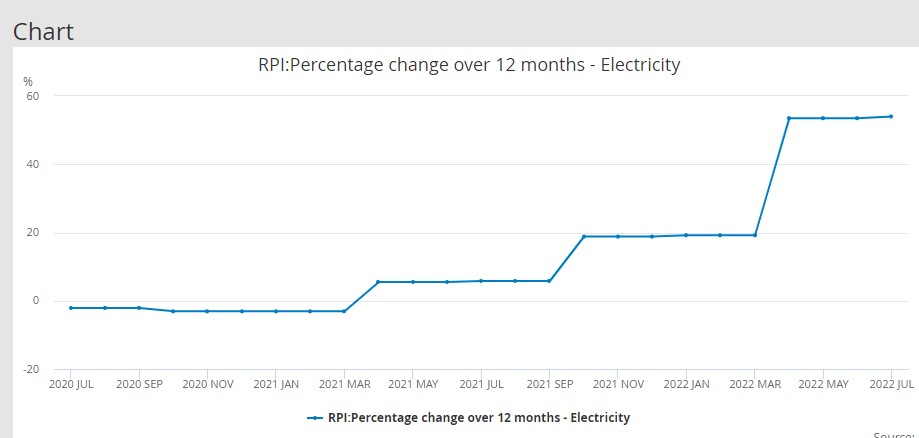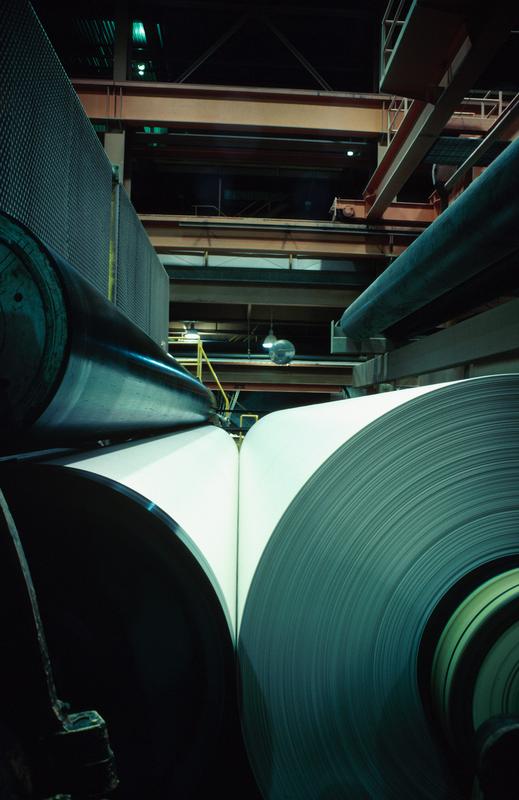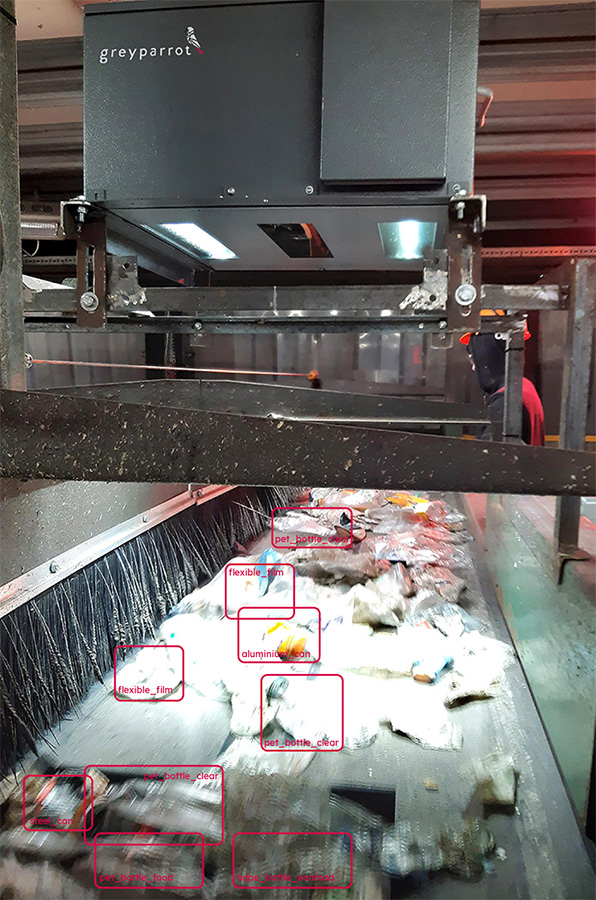Private businesses do not benefit from the Ofgem cap for householders, which rose today, meaning energy suppliers can charge full price to business customers.
This comes on top of already rising costs of fuel after recyclers lost their entitlement to use red diesel, as well as the impact of worsening inflation and staff shortages.
Data published earlier this month by Office for National Statistics (ONS) showed that in the period between March and July 2022 alone, energy prices have risen by 35% with more set to come.
This has been a cause for concerns amongst recyclers, with Dr Simon Ellin, CEO of The Recycling Association saying that “the situation is becoming more acute by the day and could end up devastating for the whole industry”.
The Wood Recyclers Association has already warned local authorities that they may have to pay for wood, while other material recyclers have warned that as recycling is an energy intensive industry, costs will soar this winter and will have to be passed on.
Some even went so far as to say the cost of recycling material could be prohibitive, and materials could become more attractive to energy recovery operators and “action is needed” to avoid this happening.

‘Grim outlook’
Speaking with letsrecycle.com, Dr Ellin said: “Papermaking, despite the huge environmental benefits overall, is an energy intensive industry and many European mills have chosen to take prolonged downtime this summer partly due to horrendous energy costs.”
He explained that some recyclers might be slightly buffered by the contracts they are currently in, but once those deals expire, their electricity rate will quadruple if the current rates continue. “The outlook is grim,” Dr Ellin added.

This was echoed by a large plastics recycler, who said that some companies might be going on short time of four days a week, reduce capacity and lay people off as a way of coping with the increased costs. This is expected to have a knock-on effect on the levels of recycling.
They explained that it is not easy to reduce costs, especially considering the added inflationary pressures and staff shortages, which are seen across the board.
“Something has to give, and the price of waste is the main variable that can move. Therefore, the price of material, as well as demand, might weaken,” they added.
With the Department for Business, Energy and Industrial Strategy (BEIS) recently admitting that UK businesses are facing the highest costs in Europe, there are also concerns the export market will become more attractive.
Dr Ellin said: “I must admit, it’s very difficult to see how government can deliver on their circular economy ambitions given the current situation.”
Government support
Earlier this month, BEIS consulted on providing extra support with electricity cost for paper mills, which Dr Ellin found “encouraging” (see letsrecycle.com story).
This has led to further calls from other recyclers who want similar schemes set up for domestic reprocessors.
We are working with government to ensure that industry is prepared
- British Glass
One such example came from the glass industry, with the trade association British Glass urging the government “to widen the net of energy-intensive businesses eligible for support to cope with higher energy bills”.
A spokesperson told letsrecycle.com: “The energy crisis has been impacting on the glass industry for over a year now and we are working with government to ensure that industry is prepared for anything that may occur in the coming months, whether this is with security of supply or the price of energy.
“We need the government to give us enough advanced warning and incentives if there are going to be problems this winter and to widen the net of energy-intensive businesses eligible for support to cope with higher energy bills.”
Wood industry
The wood recycling industry is another part of the sector that will be impacted due to its reliance on heavy machinery, such as shredders. It is also dependent on haulage, for which the prices have increased as well.
The Wood Recyclers Association (WRA) has alerted local authorities and waste management companies that supply waste wood “to prepare for the inevitable changes that are coming”, meaning collection costs for waste wood could rise, with the cost passed onto the consumer (see letsrecycle.com story).
Julia Turner, executive director of the WRA, said: “The cost of reprocessing waste wood has gone through the roof. In the past 18 months there has been a steady hike in costs to levels which are now unprecedented, placing a huge burden on our members.
“A lot of mobile plant used to run on red diesel but since the sector’s entitlement to use this ended in April, costs to run these machines have rocketed and now we are also seeing record fuel, haulage and energy prices.”
Similarly to WRA, Dr Ellin also said that “we have no choice but to pass the cost on”. This will then be further passed on by the producer, with consumers “picking up the bill”.
One plastics recycler concluded that “the main objective is to survive and get through the winter period”.










Subscribe for free